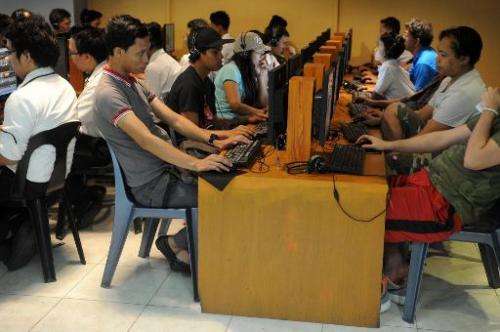Philippine leader defends controversial 'cyber libel' law

Philippine President Benigno Aquino on Wednesday defended a controversial cybercrime law penalising online libel, a day after the top court upheld its legality in a setback for campaigners who argue it could curb Internet freedom.
The Cybercrime Protection Act was passed in 2012 to stamp out online scourges such as fraud, identity theft, spamming and child pornography, but its implementation was suspended after being challenged by various groups.
However the Supreme Court on Tuesday ruled that one of its most controversial provisions, the section which penalises cyber libel, "is not unconstitutional".
Aquino defended the ruling, saying the law would not be used to stifle dissent in the Philippines, considered to be one of Asia's most freewheeling democracies.
"Will freedom of expression be stopped? I don't think that is the purpose of the law," Aquino told reporters.
"We were taught in school that your rights end where they impinge on the right of others."
Opponents say the law gives the government sweeping powers to curb Internet freedom due to provisions that impose heavy prison terms for online libel—in a country where major protests have been organised through Facebook and Twitter.
Aquino insisted that the law should apply equally to digital platforms.
"If there was libel on TV, said on radio and written in the newspaper, should that be exempted in another format?" he said.
"But I repeat, if you are saying the truth, why would you fear libel?"
While the Supreme Court ruled against a provision giving authorities sweeping powers to shut down websites or record Internet traffic data in real time, it upheld the online libel provisions.
Critics fear the government could misuse the law to go after journalists who report on official corruption.
"By extending the reach of the antediluvian libel law into cyberspace, the Supreme Court has suddenly made a once infinite venue for expression into an arena of fear, a hunting ground for the petty and vindictive, the criminal and autocratic," the National Union of Journalists of the Philippines said in a statement.
Groups opposed to the law are set to file a motion for reconsideration but the Supreme Court only rarely reverses its decisions.
© 2014 AFP





















